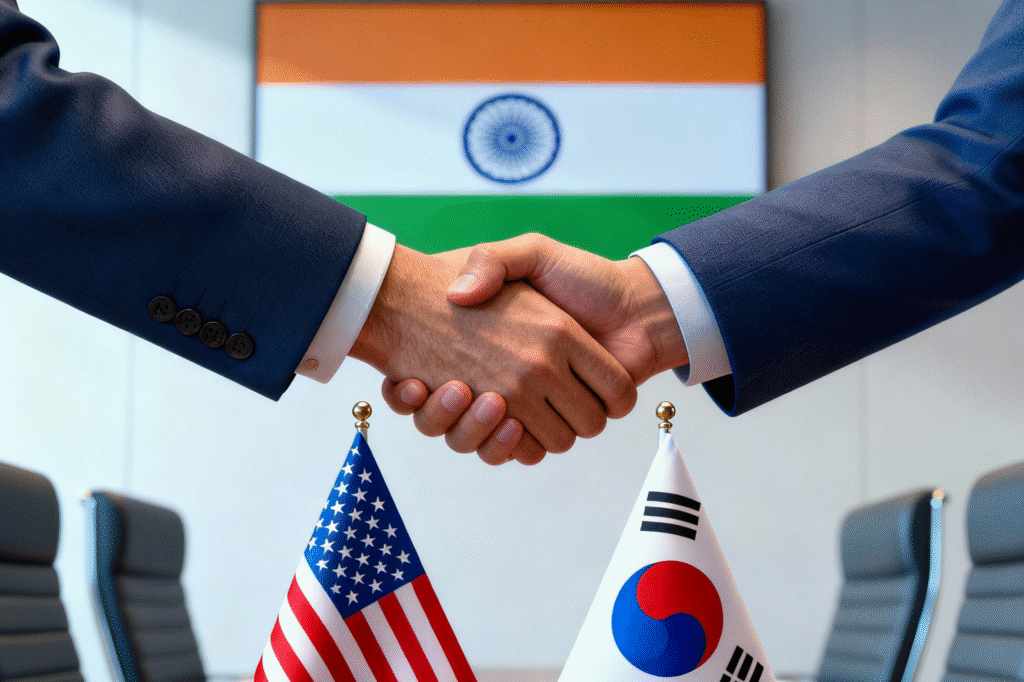
President Donald Trump announced Wednesday that the United States has finalized a trade agreement with South Korea worth $350 billion, ending weeks of negotiations over investment details. The breakthrough came during an 87-minute summit with South Korean President Lee Jae Myung in Gyeongju on the sidelines of the Asia-Pacific Economic Cooperation forum.
“We reached a deal and we did a lot of different things,” Trump told reporters before a state dinner, adding that the agreement was “pretty much finalized”.
Deal Structure and Investment Terms
The agreement includes $200 billion in direct cash investments and $150 billion in shipbuilding cooperation, according to Kim Yong-beom, South Korea’s senior secretary for policy. Seoul set an annual cap of $20 billion toward the cash investments, to be paid in installments over 10 years.
The reciprocal tariff rate between both countries will remain at 15%, matching the framework initially agreed upon in July. Automotive tariffs were also adjusted to 15%, bringing South Korea in line with Japan’s rate after Tokyo pledged $550 billion in U.S. investments earlier in Trump’s Asia tour.
India Trade Deal Takes Shape
Trump signaled strong momentum toward a trade agreement with India during his address to APEC business executives Tuesday. “I’m doing a trade deal with India, and I have great respect and love for Prime Minister Modi,” Trump said, describing Modi as “the nicest looking guy” and “tough as hell”.
Negotiations have reached final stages, with discussions focused on reducing U.S. tariffs on Indian exports from the current 50% to potentially 15%, according to sources familiar with the talks. India currently faces steep penalties after Trump imposed additional tariffs over the country’s Russian oil purchases.
Broader Asia-Pacific Strategy
The South Korea announcement caps a diplomatic push that has yielded multiple trade frameworks across Asia. Trump’s six-day tour produced agreements with Malaysia, Cambodia, and Japan, with the president predicting total new investments could reach $22 trillion by year’s end.
“We’re signing one trade deal after another to balance our relationships on the basis of reciprocity,” Trump declared at the APEC CEOs luncheon. Japan’s investment includes projects from SoftBank Group, Westinghouse, and Toshiba Corp., ranging from $350 million to $100 billion in sectors like energy, artificial intelligence, and critical minerals.
High-Stakes China Meeting Ahead
Trump is scheduled to meet Chinese President Xi Jinping on Thursday, marking their first in-person discussion since 2019. The president expressed optimism about reaching what he called a “fantastic agreement” that would address trade tensions between the world’s two largest economies.
The anticipated deal may include a postponement of China’s proposed rare earth export restrictions and a delay of Trump’s threatened 100% tariff on Chinese goods, in exchange for Beijing’s commitment to limit fentanyl precursor chemicals and increase purchases of U.S. agricultural products.
Market and Regional Response
South Korea’s won rose 0.54% against the dollar following the trade announcement, reflecting investor confidence in the agreement’s impact on the export-dependent economy. The deal removes uncertainty that had clouded South Korean markets since tariff negotiations stalled in August over concerns that upfront cash payments could destabilize foreign exchange markets.
North Korea conducted cruise missile tests as Trump arrived in South Korea, though the president downplayed the provocations while reiterating his willingness to meet Kim Jong Un if the North Korean leader responded to his overtures.
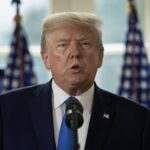


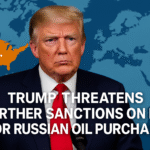
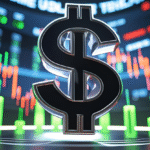

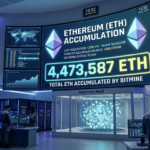
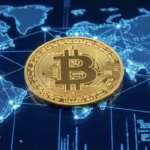
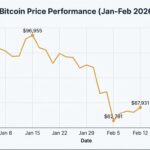

 Join our Telegram Channel
Join our Telegram Channel